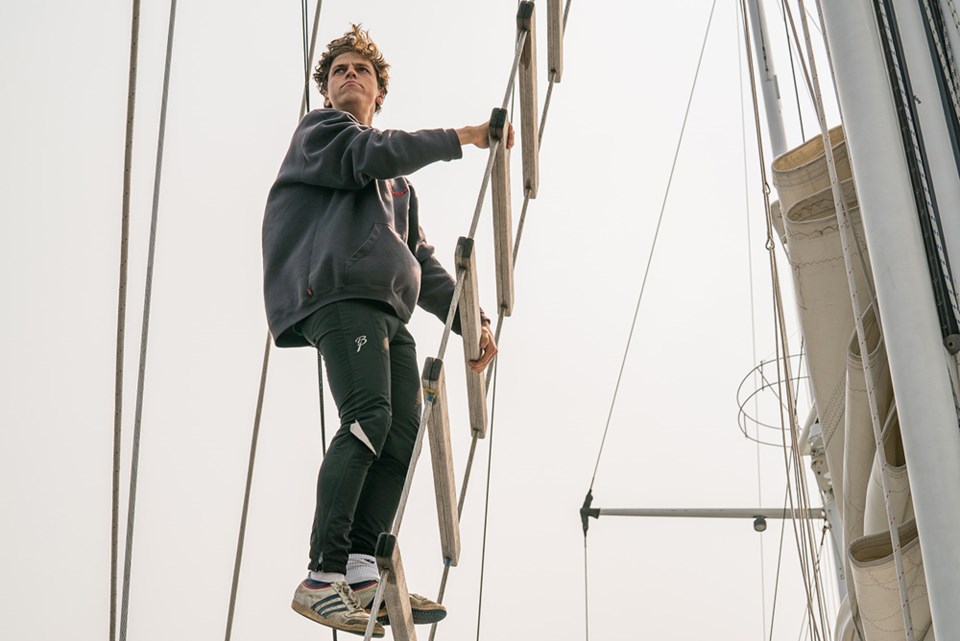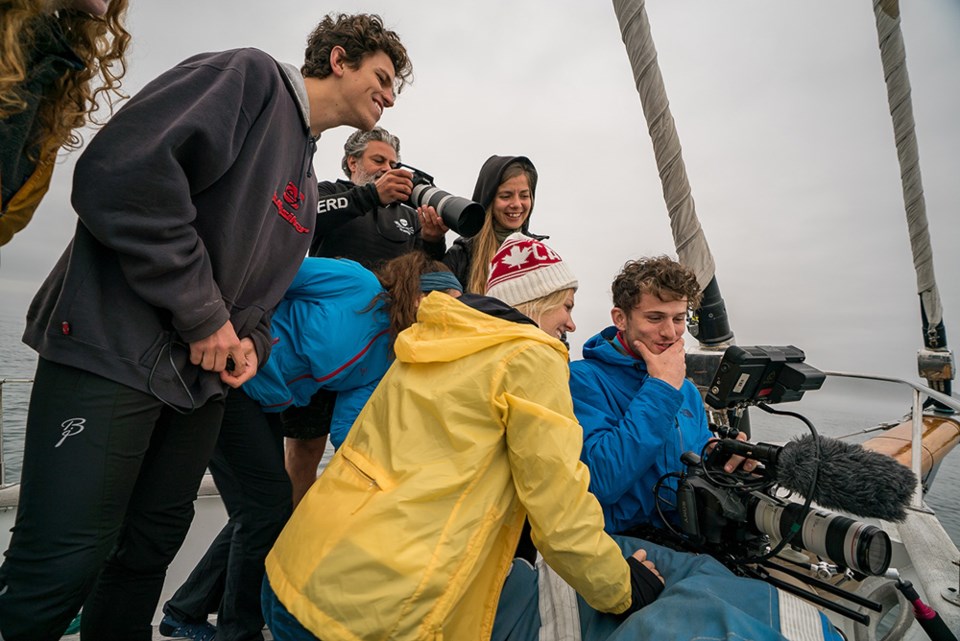Like any millennial worth his salt, Quest University grad Andrew Luba filmed and uploaded to Facebook the moment he discovered he won a $50,000 grant from Storyhive to produce an environmental documentary.
On the video, Luba scrolls through the online announcements looking for his in-production documentary in the list of winners.
Upon seeing that the proposed doc — about the interconnected fate of the southern resident killer whale, chinook salmon, and humans on the West Coast — had won, ���ܲ���’s face lit up with a huge grin.�� He shared the news with the camera and then jumped up and did an extended, freestyle dance.
It was a jubilant expression for the otherwise serious and thoughtful 20-something, who graduated from Quest in 2015.
Luba and his team will receive the funding to complete production of the pilot of what they hope will be a documentary series.
��Out of almost 300 entries, ���ܲ���’s team was among 30 winners from western Canada.
“It really helps us take it to the next level,” said Luba about the funding. “The original plan was that this would be a 10-episode series.”
Previously, Luba and the team had crowd-funded to get the series started.
This latest cash injection allows them to make the first episode professional quality and Luba hopes that quality will draw further funding to continue the series "and make it into a bigger movement.”

The whole goal of the series is to engage people with the issue of the extinction of the southern resident killer whale — a very topical concern with the recent presumed death of young female whale J50. Her death leaves only 74* southern resident killer whales in existence.
“It hopefully won’t be an extinction, but the way things are going now it is headed down that road,” Luba said, adding that much is interconnected with the whales. “A big risk to the southern resident killer whale is the dwindling chinook salmon population, which of course relies on and is affected by various animals within the Salish Sea ecosystem.”
Humans are causing problems for these vulnerable animals because of “poor environmental decision-making,” Luba added.
“And humans will ultimately suffer if we lose these animals.”
Originally from Toronto, Luba said going to school in Squamish heightened his appreciation and interest in nature and protecting it.
“Growing up, going biking with my mom or my dad in the city, going into ravines, connecting to what nature there was… was a big influence,” he said. “But in Squamish, you are just in nature."
Being recognized for his environmental concerns isn’t new to Luba.
In 2017 he was one of six finalists for the Lieutenant Governor’s Visionaries Prize for environmental stewardship. His submission was a proposal for , a meat-substitute, that Luba — a devoted vegetarian — believed could encourage more meat-lovers to give up eating animals, thus reducing green house gas emissions.
���ܲ���’s Coextinction will be available to watch in spring of 2019 on Telus Optik TV/On Demand and on .
��
*Please note, this story has been corrected since it was first posted. There are currently only 74 resident killer whales remaining, not 75 as stated originally.��
��
��
��




